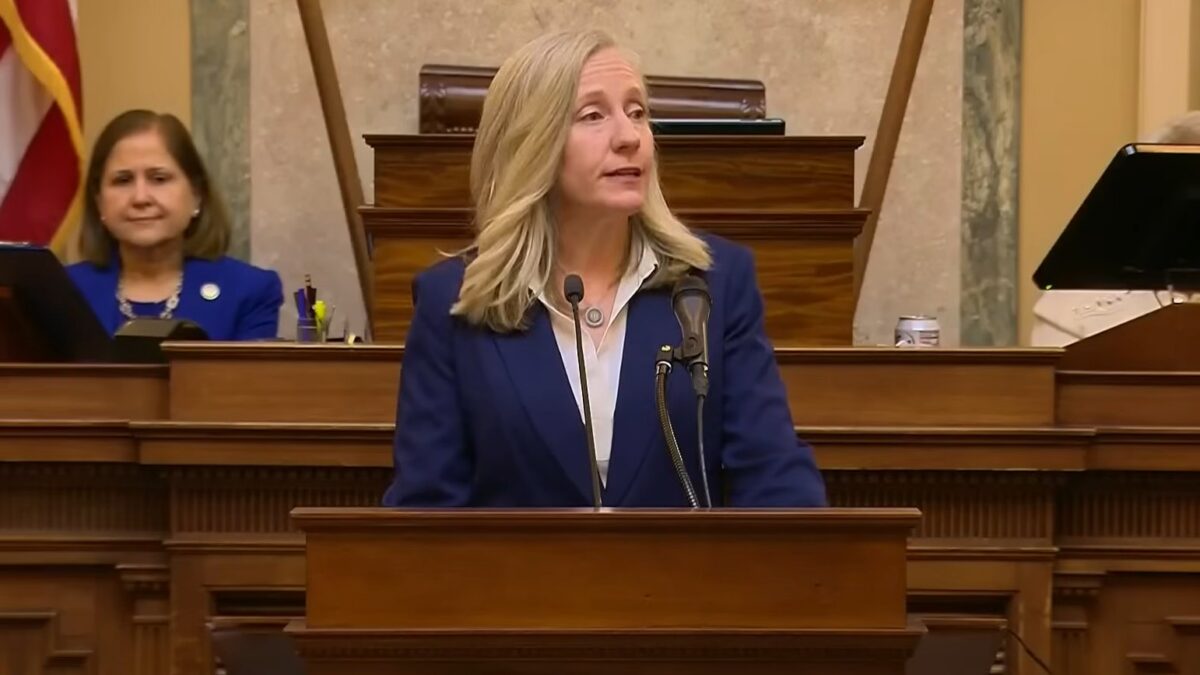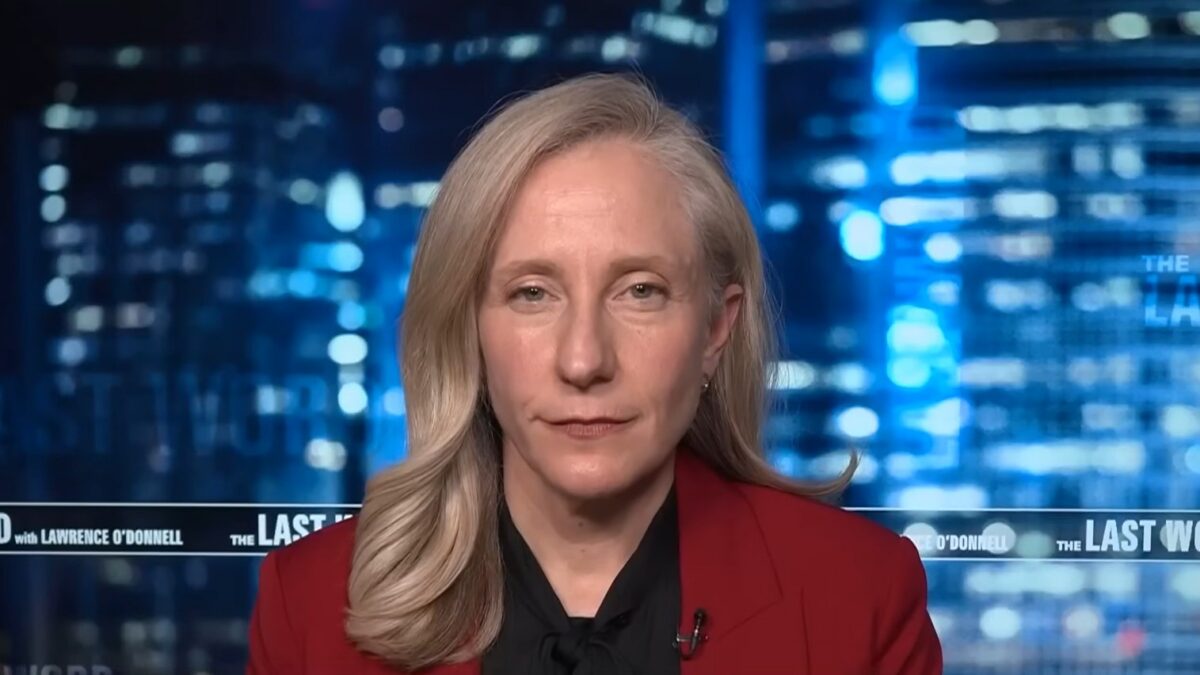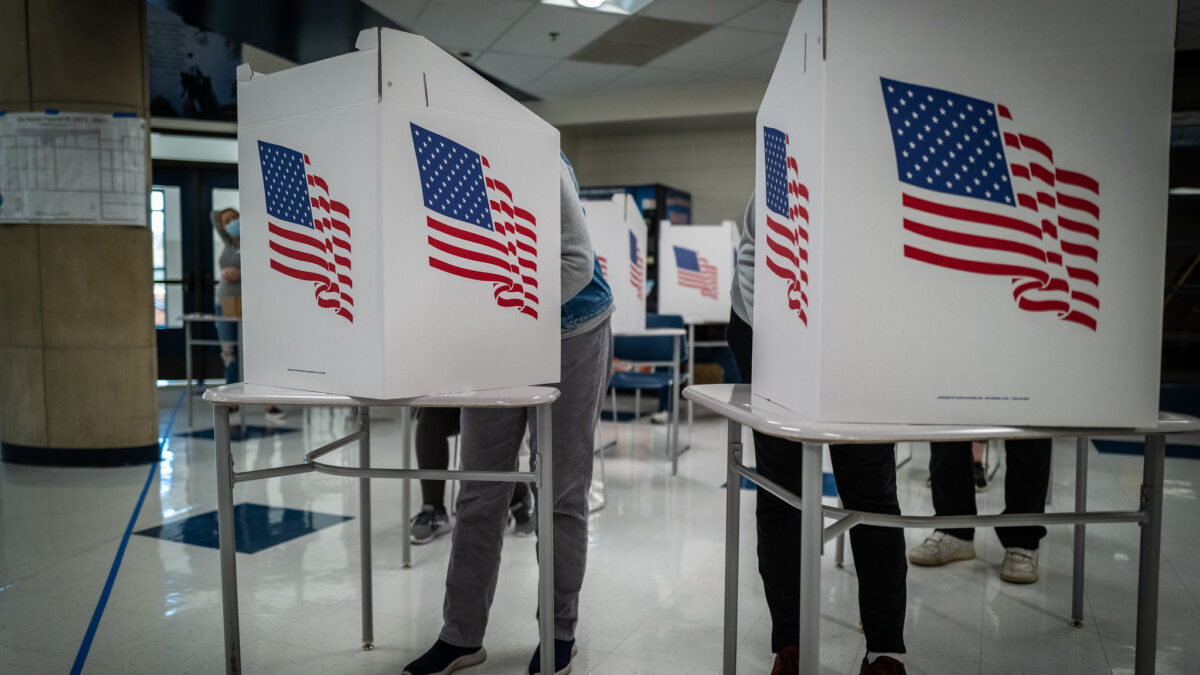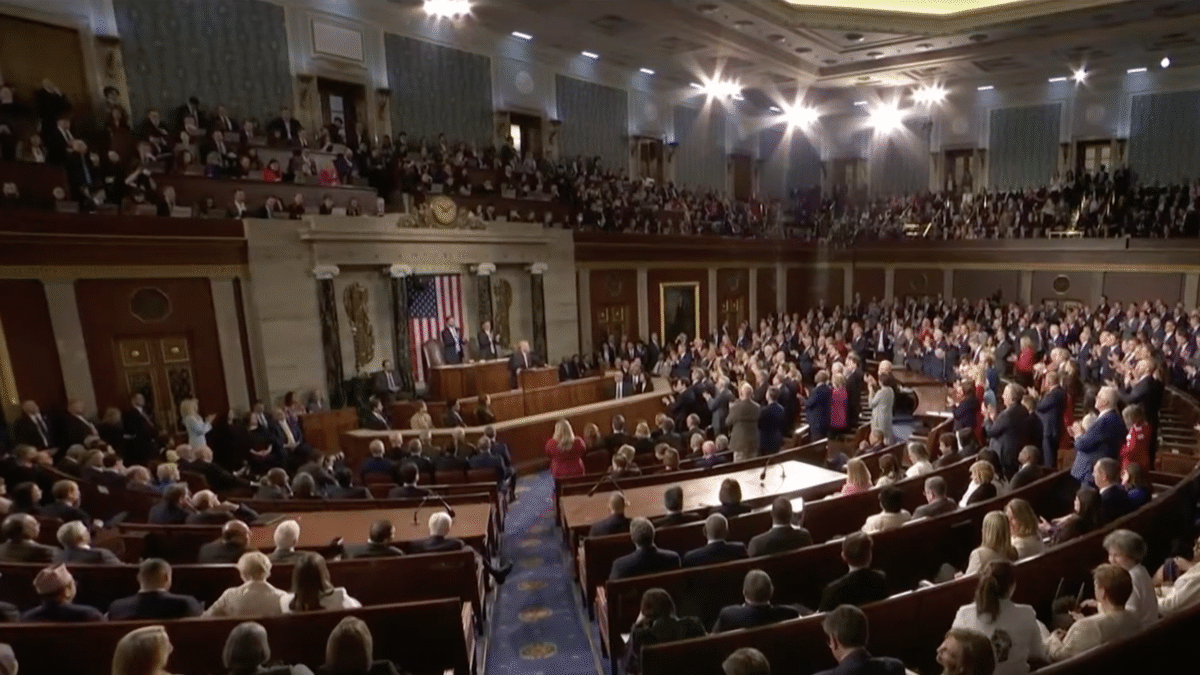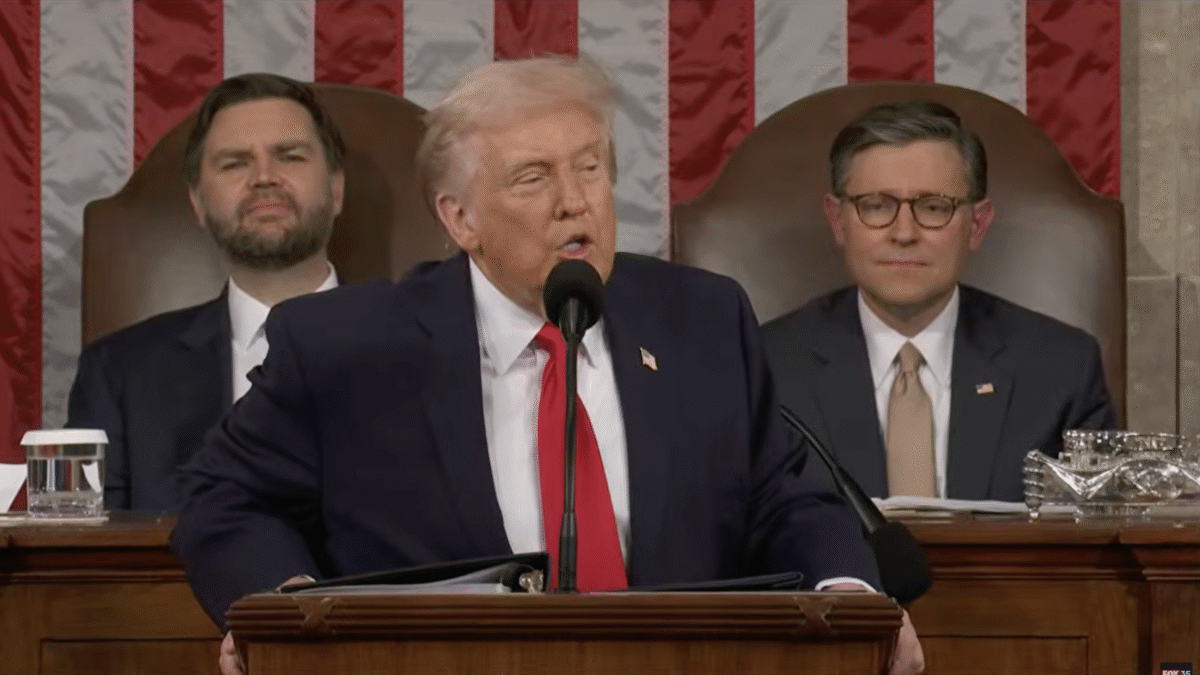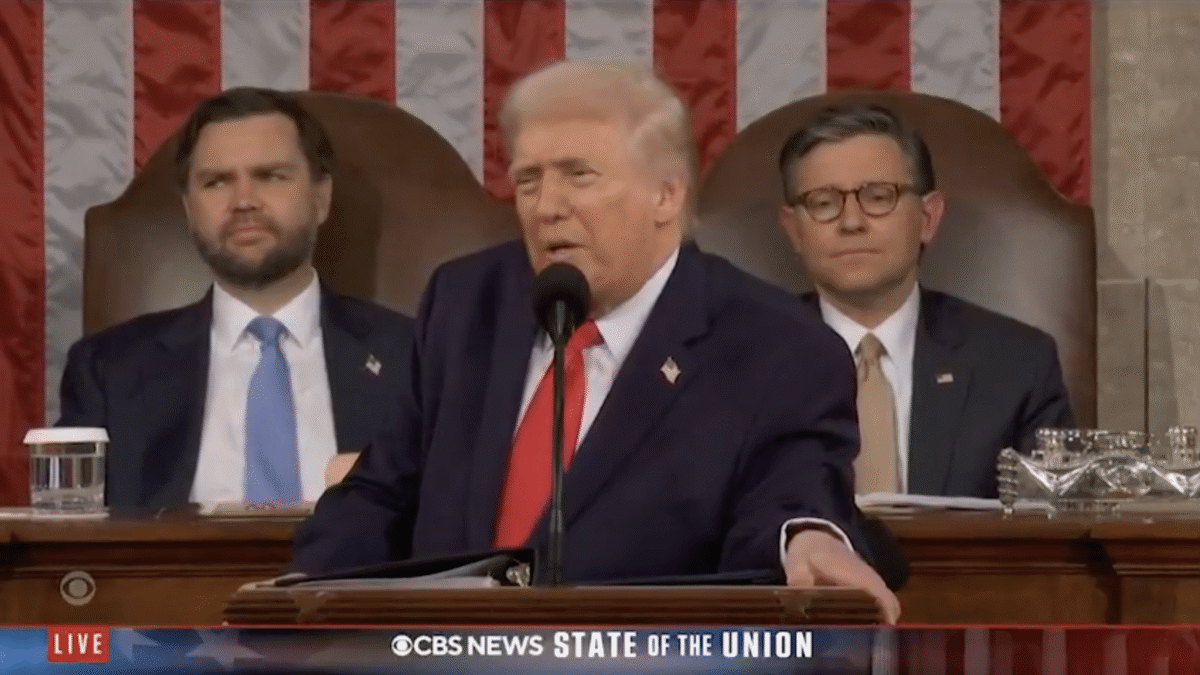A prominent voter-roll management system used by 31 states and the District of Columbia has politically compromised ties, according to a new report by independent research group Verity Vote.
The Electronic Registration Information Center, or ERIC, was sold to states as a quick and easy way to update their voter rolls. Started in 2012 by far-left activist David Becker and the left-leaning Pew Charitable Trusts, the program is ostensibly run by the member states themselves. But as public records show, Democratic operatives are working overtime under the cover of ERIC to accomplish their partisan goals and drive Democratic voter turnout.
David Becker, Far-Left Activist
Becker’s left-wing ties have long concerned Republican state officials participating in ERIC. Before he started ERIC, Becker worked as a lobbyist for People for the American Way, a George Soros-funded advocacy group best known for the Right Wing Watch project, a website that catalogs and attacks conservative politicians and movements.
Before that, though, he was a Justice Department attorney whom colleagues remember as a “hard-core leftist” who “couldn’t stand Conservatives.”
While at the DOJ, Becker became the subject of an ethics complaint after he contacted Boston and offered his help in defeating a lawsuit made against the city by his employer for voting infractions. According to Hans von Spakovsky, former counsel to the assistant attorney general for civil rights at the time, Becker “was supposed to be nonpartisan, but his emails uncovered in the Boston investigation revealed nasty, disparaging remarks about Republicans. Very unethical and unprofessional.”
After his stint at the DOJ and People for the American Way, Becker became the director of election initiatives at Pew Charitable Trusts, where he organized the creation of ERIC in 2012. Though Becker officially left ERIC in 2016, public records show he has continued to play a strong role in the organization, coordinating with state officials on ERIC-related activities and even running ERIC meetings. Documentation of that role is provided in Verity’s report. This is in violation of ERIC’s bylaws as Becker is a “non-voting board member” of ERIC and should not have the power to direct projects.
While Becker is a shrewd activist, ERIC member secretaries of state describe him as charming and brilliant. Becker is known to host swanky, all-access-paid election integrity conferences for state election officials and their spouses. Even during the pandemic, Becker courted ERIC members with Zoom catch-up calls. “Shane Hamlin and I have discussed doing another virtual get-together with the folks in the states (we did a small one last Friday) to catch up and hang out. No particular agenda, not about ERIC, just a good way to kick off the Memorial Day weekend (what’s a weekend?). I hope many of you can make it,” a May 15, 2020, email to ERIC members said.
ERIC, CEIR, and ‘Zuck Bucks‘
But now ERIC is undergoing scrutiny for its involvement with another Becker project, the Center for Election Innovation and Research (CEIR). That group was one of two leftist groups used to funnel Mark Zuckerberg’s $419 million that funded the private takeover of government election offices in 2020. This funding targeted the blue areas of swing states, allowing left-wing operatives to run Democrat “get out the vote” operations from inside the election apparatus.
ERIC shares voter roll data — including records of unregistered voters — it receives from the states with CEIR, according to public information requests detailed in the report. CEIR then develops targeted mailing lists and sends them back to the states to use for voter registration outreach. As part of their agreement with ERIC, states are not allowed to disclose any data they send to nor receive from ERIC, however, ERIC is not under the same constraints and is able to work with CEIR.
Participants also express concern that ERIC does more to inflate voter lists without scrutiny than to scrub those lists of people who have died, moved, or otherwise become ineligible to vote in a given jurisdiction. Per ERIC’s own statistics, in 2020, it identified 17 million new voters compared to identifying only about 3 million inaccurate voters on the rolls.
Some member states are beginning to worry the organization is being mismanaged. Earlier this year, Louisiana announced its withdrawal from ERIC due to “questionable funding sources and that possibly partisan actors may have access to ERIC network data for political purposes.”
Even more troubling is that some of the information shared — including the email addresses and cell phone numbers of voters — is now being used for a “disinformation” voter contact drive, according to reports.
ERIC’S Failure to Clean Voter Rolls
How does ERIC work? According to its membership agreement, every 60 days states are required to send “all active and inactive voter files,” “all licensing or identification records contained in the motor vehicles database,” and any state agency records that perform “voter registration functions” to ERIC, which matches those against data from all other member states and Social Security death data. From there it creates voter maintenance lists — lists of voters who have moved, died, or have duplicate registrations — and lists of non-registered voters called “eligible but unregistered.” States are then required to contact every person on the latter list and tell them how to register.
According to the Verity Vote report, this requirement does not exist for voter roll maintenance. Per the membership agreement, only after a state has independently validated the ERIC voter maintenance list is it required to address inaccurate voter records, meaning if a state does not independently validate the ERIC data, it is not required to clean its voter rolls. Such a policy is the reason for the large discrepancy between voter roll additions and removals — and why election integrity experts are skeptical of ERIC.
A lawsuit against the District of Columbia by the Public Interest Legal Foundation shows this failure to clean voter rolls in action. It mentions a 2016 audit by the Office of the District of Columbia Auditor after D.C. joined ERIC in 2014, which found that the D.C. Board of Elections “did not comply with the applicable federal and District laws regarding the removal of decedents from the voter list,” as well as removing duplicate voter records.
Meanwhile, a March 2022 audit by Michigan’s auditor general found the state’s Bureau of Elections failed to clean its voter rolls, though Michigan had joined ERIC in 2019.
Furthermore, a 2020 Judicial Watch study found that 353 U.S. counties had 1.8 million more registered voters than eligible voting-age citizens. Notably, the study also identified eight states showing statewide registration rates exceeding 100 percent. Seven of the eight states are ERIC members: Alaska, Colorado, Maine, Maryland, Michigan, Rhode Island, and Vermont. For example, 40 out of 64 Colorado counties have more registered voters than eligible residents, and Colorado has been a member of ERIC for 10 years.
How does CEIR fit into all this? Public records obtained by Verity Vote show that ERIC transfers lists of unregistered but eligible voters it receives from the states to CEIR, which then creates targeted mailing lists from the data and transfers those back to the states for distribution. States use these lists for their voter registration outreach.
In a September 4, 2020, email sent to the Georgia secretary of state’s office, former CEIR employee Jenny Lovell explains how Georgia’s “eligible but unregistered,” or EBU, data must be sent to ERIC before it is transferred to CEIR. “I’ve just finished randomizing your EBU list. … To get them to you, we’ll simply reverse the transfer process: I’ll send the files to ERIC and they’ll get them to you.” Another email obtained by Verity Vote shows Becker emailing ERIC member states on April 17, 2020, explaining that “CEIR is planning to help you coordinate your ERIC EBU outreach this year.”
It’s obvious ERIC and CEIR work hand-in-glove, but when asked explicitly about ERIC’s relationship with CEIR in creating voter outreach lists, Shane Hamlin, executive director of ERIC, refused to acknowledge CEIR, and instead told The Federalist, “ERIC generates reports of eligible but unregistered citizens and shares them with member states who then utilize them as they determine, within the provisions of the membership agreement.”
ERIC and CEIR’s Impact on the 2020 Election
Michigan is a good example of “eligible but unregistered” voter outreach. Thanks to the joint efforts of ERIC and CEIR, tens of thousands of mailers were sent out to unregistered voters there in September 2020. Because Michigan had approved automatic voter registration by mail the year prior, recipients of the EBU mailer were automatically registered to vote if they did not respond. Approximately 30 days after the mailer was sent, 114,000 people were automatically added to Michigan’s voter rolls, an unprecedented single-day registration spike.
As previously reported, CEIR held significant sway in the 2020 election. After receiving more than $70 million from the Chan Zuckerberg Initiative, CEIR mainly funneled the cash to Democratic secretaries of state in key swing states to gain access to data needed to inflate voter rolls and drive Democratic voter turnout. Pennsylvania and Michigan received the most CEIR funds, with Pennsylvania’s Department of State receiving $13 million and Michigan nearly $12 million.
CEIR’s own website says grant funds were exclusively used for voter education, specifically “direct mail outreach, paid media campaigns, and other communication activities.” In Michigan, however, $11.8 million of its $12 million grant went to Democratic consulting firms for conducting so-called “nonpartisan” voter education. Meanwhile, the $13 million to Pennsylvania’s secretary of state funded a massive “voter information” campaign in mostly Democrat-heavy Philadelphia and Allegheny counties.
Public records obtained by Verity Vote show Secretary of State Kathy Boockvar signed an “eligible but unregistered” outreach contract with CEIR, agreeing to provide all data “CEIR reasonably requests” the day before the $13 million grant was awarded. Boockvar also agreed to keep “any information Grantee receives from CEIR relating to CEIR’s funders or funding agreements or arrangements” strictly confidential. As Pennsylvania is still under contract with CEIR, it is prohibited from disclosing that CEIR is funded by Zuckerberg.
While the Pennsylvania Department of State has no qualms about sharing its voter data with CEIR for voter outreach efforts, it refused to share the same data with state Senate Republicans. Back in September 2021, the Pennsylvania GOP subpoenaed the Department of State for its voter records for the purpose of conducting an audit of the 2020 election. The Democratic Party-aligned administration refused and sued the Senate Republicans for requesting “confidential” voter data.
State Attorney General Josh Shapiro, who filed the lawsuit, said, “We would not let a large company act this way with personal data,” referring to the Republicans’ plans to turn the data over to a private firm to conduct a review. Clearly, Pennsylvania’s Department of State doesn’t mind a private firm like Zuckerberg funded-CEIR handling the data instead.
REVERE ‘Disinformation’ Campaign
Another unsettling public records discovery is a new program by CEIR to combat so-called disinformation. According to documents obtained from the Georgia secretary of state, CEIR is developing a “free service” that will allow states to communicate with voters via text and email to fight what it calls “disinformation.”
Per Becker in the Georgia FOIA documents, “CEIR has built a new, secure electronic messaging tool called REVERE, which will enable states to draw on phone numbers and email addresses contained in the voter file, and send texts, emails, and even voicemails to any set of voters.”
CEIR ostensibly uses voter data obtained by ERIC from the states — specifically cell phone numbers and email addresses — for the program to “assist state election officials in combating foreign and domestic disinformation on social media and email.” During the 2020 presidential election, Georgia appeared to run a pilot program of REVERE. CEIR’s website states that Georgia used some of the CEIR funds it received for countering disinformation and “issuing public service announcements warning voters of disinformation.”
What Can States Do?
While several member states have expressed concern over ERIC, only Louisiana has formally withdrawn. ERIC makes it difficult for states to leave, as it prohibits resignation 91 days before a federal general election. So what can states do?
Christian Adams, president of the Public Interest Legal Foundation, recommends that states stop complying with ERIC’s membership requirement prohibiting states from sharing their voter roll maintenance data, as it conflicts with federal law. The Public Interest Legal Foundation also has four lawsuits against Alaska, Colorado, Louisiana, and D.C. focused on a provision in the National Voter Registration Act (NVRA), which requires that states make public all data related to their voter maintenance lists.
While the first step will help increase transparency, it may violate the NVRA, which stipulates that records related to “a declination to register to vote or to the identity of a voter registration agency through which any particular voter is registered” are not permitted to be made public. Thus, ERIC and CEIR are able to make their “unregistered but eligible” voter outreach lists using private citizens’ data, even while it is illegal for the data to be made public. States are in a bind.
“The NVRA prohibits the dissemination of those individuals who decline to register to vote when asked at the DMV or the social services agencies. Their names are NOT supposed to be shared. But the ERIC membership agreement REQUIRES states to deliver that data to ERIC and also requires states to spend tax dollars to try AGAIN to get those same individuals to register to vote,” Cleta Mitchell, a senior legal fellow at the Conservative Partnership Institute, told The Federalist.
Mitchell believes ERIC should be sued for deceptive practices, as it sells itself to states under the guise of helping states clean their voter rolls but instead transforms them into “voter registration agencies.” Mitchell recommends states withdraw from ERIC. “Period,” she added.
James Womack, leader of the North Carolina Election Integrity Unit, argues states should immediately withdraw from or disband ERIC. “I don’t care how many board members they give you as each state, you’re not controlling what happens with that data,” Womack told The Federalist.
While North Carolina is not an official member of ERIC, the Old North State approved a trial run of ERIC in its latest budget. Womack’s solution to ERIC is that states should have their own system for maintaining their voter rolls “because the technology’s there.”
Womack has a background in IT and is developing a voter roll maintenance alternative for North Carolina called the Voter Information Analysis and Decision Support System. He said states should model their voter roll maintenance systems after Child Support Enforcement, where every state is responsible for its data and has the ability to do cross-checks with other states through synchronous messaging — without having access to another state’s data. Multiple factors could trigger cross-checks between states, including the national change of address directory.
“My argument is that there’s a better architecture that provides an IP solution — an automation solution which is very efficient,” Womack said. “And every state should be held responsible and accountable for its voter list.”
The Federalist’s Editor-in-Chief Mollie Hemingway contributed to this report.



